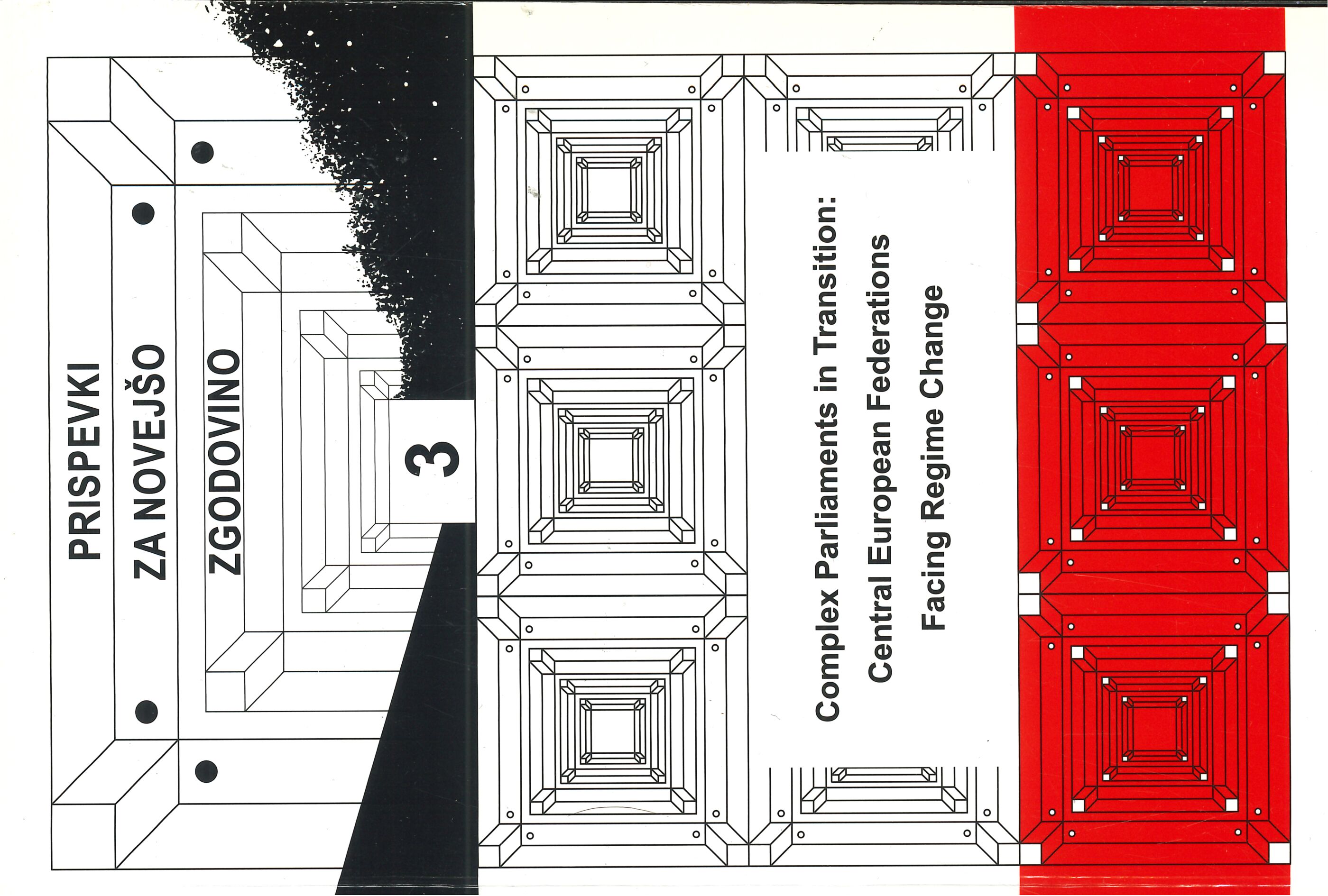The 10th Volkskammer of the GDR – Just a keen student or a parliament with its own culture?
DOI:
https://doi.org/10.51663/pnz.55.3.02Keywords:
GDR, parliament, German unification, federalism,Abstract
The last parliament of the GDR, the 10. Volkskammer, existed only from March to October 1990 and was undoubtedly different from those in other eastern European communist countries. This had to do with its special situation as the parliament of one half of a former united nation. After the victory of the conservatives in the election of March 1990 it was clear that the majority of voters wanted unification with West Germany according to Art. 23 of the German Constitution and as quickly as possible. This meant reunification by accession of the GDR to the Federal Republic. It was the Volkskammer’s main task to organize this process. Given that the 400 newly elected MPs were completely unexperienced following the model of the German Bundestag was probably the only way to be able to tackle the problems they were faced with. But this meant too that there was little room and no time to develop own solutions to their problems. Critics saw the massive support by West German political parties and institutions as a form of colonization. And a lot of MPs too were highly critical of their work. A feeling of lack of influence and powerlessness was widespread. But, as the example of the reintroduction of the five Länder shows, both sides could pull in the same direction too.
This article tries to answer the question whether this parliament was only an assiduous student of its West German master or despite the circumstances able to develop its own culture and its own pace.
References
Bergmann-Pohl, Sabine. “Die frei gewählte Volkskammer.” In Mandat für deutsche Einheit. Die 10. Volkskammer zwischen DDR-Verfassung und Grundgesetz, edited by Richard Schröder and Hans Misselwitz, 49–65. Opladen: Leske + Budrich, 2000.
Gutzeit, Martin. “Aufbau, Organisation und Arbeit der SPD-Fraktion der Volkskammer.” In ʻDie Handschrift der SPD muss erkennbar seinʼ. Die Fraktion der SPD in der Volkskammer der DDR, edited by SPD-Bundestagsfraktion, 23–36. Berlin: 2000.
Hausmann, Christopher. Biographisches Handbuch der 10. Volkskammer der DDR (1990). Köln, Weimar, Wien: Böhlau, 2000.
Kajna, Karl-Heinz. Länder – Bezirke – Länder: Zur Territorialstruktur im Osten Deutschlands 1945–1990. Frankfurt am Main: Lang, 1995.
Kelle, Herbert and Tord Riemann. Die Volkskammer – wie sie arbeitet. Berlin: Staatsverlag der Deutschen Demokratischen Republik, 1989.
Kloth, Hans Michael. Vom ʻZettelfaltenʼ zum freien Wählen. Die Demokratisierung der DDR 1989/90 und die ʻWahlfrageʼ. Berlin: Links, 2000.
Kowalczuk, Ilko-Sascha. Endspiel. Die Revolution von 1989 in der DDR. München: Beck, 2009.
Krüger, Paul. “Für einen geordneten Einigungsprozeß – zur Arbeit der CDU/CDA-Fraktion.” In Mandat für deutsche Einheit. Die 10. Volkskammer zwischen DDR-Verfassung und Grundgesetz, edited by Richard Schröder and Hans Misselwitz, 153–162. Opladen: Leske + Budrich, 2000.
Mielke, Henning. Die Auflösung der Länder in der SBZ/DDR. Von der deutschen Selbstverwaltung zum sozialistisch-zentralistischen Einheitsstaat nach sowjetischem Modell 1945–1952. Stuttgart: Steiner, 1995.
Müller-Enbergs, Helmut. “Welchen Charakter hatte die Volkskammer nach den Wahlen am 18. März 1990?.” Zeitschrift für Parlamentsfragen 22 (1991): 450–467.
Patzelt, Werner J. and Roland Schirmer, ed. Die Volkskammer der DDR. Sozialistischer Parlamentarismus in Theorie und Praxis. Wiesbaden: Westdeutscher Verlag, 2002.
Peters, Gunnar. “Verfassungsfragen in der 10. Volkskammer der DDR (1990).” Deutschland Archiv 37 (2004): 828–839.
Protokolle der Volkskammer der Deutschen Demokratischen Republik: 10. Wahlperiode (vom 5. April bis 2. Oktober 1990), edited by Deutscher Bundestag, Referat Öffentlichkeitsarbeit. Berlin: 2000
Richter, Michael. “Die Entstehung der neuen Bundesländer 1989/90.” In Länder, Gaue und Bezirke. Mitteldeutschland im 20. Jahrhundert, edited by Michael Richter, Thomas Schaarschmidt and Mike Schmeitzner, 279–306. Dresden: Mitteldeutscher Verlag, 2008.
Richter, Michael. “Föderalisierung als Ergebnis der friedlichen Revolution in der DDR 1989/90.” In 15 Jahre Deutsche Einheit. Was ist geworden?, edited by Gerhard Besier and Katarzyna Stokłosa, 57–71. Berlin: LIT 2007.
Sabrow, Martin. “Der vergessene ‘Dritte Wegʼ.” Aus Politik und Zeitgeschichte 11 (2010): 6–13.
Schirmer, Roland. “Machtzerfall und Restabilisierung der Volkskammer im Lauf der Friedlichen Revolution.” In Parlamente und ihre Macht. Kategorien und Fallbeispiele institutioneller Analyse, edited by Werner J. Patzelt, 171–215. Baden-Baden: Nomos, 2005.
Schug, Alexander, ed. Palast der Republik. Politischer Diskurs und private Erinnerung. Berlin: Berliner Wissenschafts-Verlag, 2007.
Schwarz, Hans-Peter, ed. Die Fraktion als Machtfaktor. CDU/CSU im Deutschen Bundestag 1949 bis heute. München: Pantheon, 2009.
Thaysen, Uwe. Der Runde Tisch. Oder: Wo blieb das Volk? Der Weg der DDR in die Demokratie. Opladen: Westdeutscher Verlag, 1990.
Tüffers, Bettina. “Die Volkskammer im Fernsehen. Strategien der Selbstinszenierung in der 10. Volkskammer der DDR.” In Lebenswelten von Abgeordneten in Europa 1860–1990, edited by Adéla Gjuričová, Andreas Schulz, Luboš Velek and Andreas Wirsching, 311–332. Düsseldorf: Droste 2014.
Volkskammer der Deutschen Demokratischen Republik, 9. Wahlperiode, Protokolle von der 1. Tagung am 16. Juni 1986 bis zur 18. Tagung am 6. und 7. März 1990, vol. 25. Berlin: 1990.
Published
Issue
Section
License
Copyright (c) 2015 Bettina Tueffers

This work is licensed under a Creative Commons Attribution 4.0 International License.
Authors who publish with this journal agree to the following terms:
- Authors retain copyright and grant the journal right of first publication with the work simultaneously licensed under a Creative Commons Attribution License that allows others to share the work with an acknowledgement of the work's authorship and initial publication in this journal.
- Authors are able to enter into separate, additional contractual arrangements for the non-exclusive distribution of the journal's published version of the work (e.g., post it to an institutional repository or publish it in a book), with an acknowledgement of its initial publication in this journal.
- Authors are permitted and encouraged to post their work online (e.g., in institutional repositories or on their website) prior to and during the submission process, as it can lead to productive exchanges, as well as earlier and greater citation of published work (See The Effect of Open Access).


